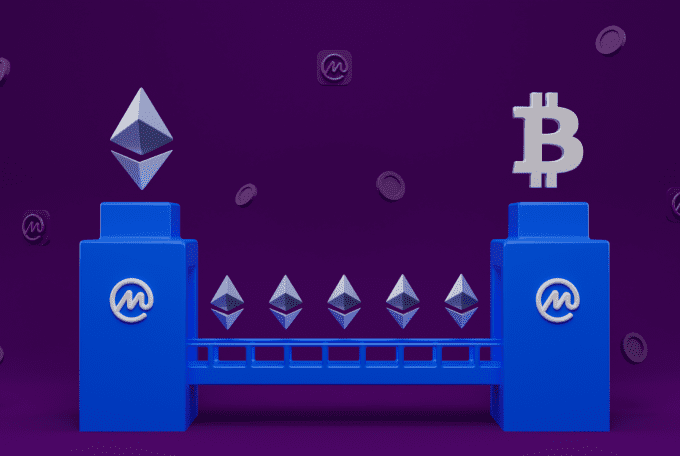The variations between cryptocurrencies are important to traders since they provide essential insights into how supply and demand might alter for every coin over time and how the trading of cryptocurrencies influences market values. For more information, visit 1K Daily Profit.
Supply
To set market pricing, the supply of coins plays a vital function. For example, the upper limit of Bitcoin and Bitcoin cash is 21 million coins, whereas both Litecoin and Ripple have increased their maximum supplies respectively by 84 million and 100 billion.
Release Rate and Mining
With time, the supply of coins varies with the mining or issue of new coins. The mining method is the verification and delivery of new currencies for “blocks” of transactions. On the contrary, Ripple coins were pre-mined at the rate of one billion each month by its founders.
Reputation
Although Bitcoin’s value has increased over recent years and is the biggest crypto-currency through capitalization, this shows that the reputation of cryptocurrency valued remains a crucial issue. Press reports are probably a crucial element here, with a negative press that tends to negatively affect pricing – for example, following a large wallet attack.
Application Decentralization
Although Bitcoin, Bitcoin, and Litecoin are autonomous cryptocurrencies, they operate in broader networks with expanding applications. Therefore, if the popularity of these networks increases or mainstream companies adopt them, the demand may increase.
Scalability and Transaction Speed
As cryptocurrencies are accelerated, there will likely be more scrutiny of the transaction speeds and their capabilities to deal with many transactions. In addition, blockchain size and safety may also affect scalability since these parameters affect the profitability of mining, the speed of the connected network and users’ propensity to buy and utilize coins. Hence, traders should be careful to upgrade software and fork to observe how technology scaling is developed.
Finance Decentralized
Decentralized finance, in its simplest definition, is about financial activity without the participation of a typical bank.
Then think about all the actions you usually use to receive a credit, insurance, investment, or even credit card at a bank or some other financial institute.
“These [activities] are all financed traditionally and involve intermediaries,” explains Ollie Leech, editor-in-chief of CoinDesk. “With [cryptocurrencies], these things are now fully autonomous.” This is, however, one of DeFi’s charms, Leech argues.
Likewise, proponents claim that cryptocurrency can automate and digitize more and more areas of the financial system, thus bringing “intelligent” techniques to their homes. The appeal of this outside the conventional — or central — financial system depends on who you are asking.
Gold Digital
Digital gold is a crypto-currency that can store and increase value, comparable to actual gold. However, there is a limited quantity of gold globally, just as digital cryptocurrencies have limited resources.
“People acquire gold not for the sake of expecting to go and spend it on the shop, but for the expectation that it will have a value, and maybe a value increase over time,” explains Galen Moore, Data and index director at CoinDesk.
A digital gold cryptocurrency is mostly based on Bitcoin, but this was not its initial goal. Initially introduced as a peer-to-peer cash system, Bitcoin limited its potential for that purpose, but its volatility, for example. As a result, it was described as Bitcoin’s gold-like silver. Litecoin’s another example.
Internet Money or Digital Cash
The money on the Internet is what it sounds like—you use it to buy something on the web. Bitcoin was meant as digital payment originally. However, a new cryptocurrency was created with speculation, Bitcoin cash (a variation of Bitcoin).
The price of Bitcoin was too unpredictable that it was good money; proponents of Bitcoin Cash stated the whole point of the currency from the beginning.
“What Bitcoin’s future was going to be was a big discussion. Whether it was gold or cash? The golden people who wanted it won out,” Moore adds. The ruling marked “a pivotal point for Bitcoin where digital gold was.”
Platforms for Software
Ethereum is another cryptocurrency network: it runs as a cryptocurrency network and offers developers a programmable crypto-environment along with its native money, Ether.
Similarly, Ethereum lets developers create “dapps” – Ethereum-based applications that tap on the network – for the download and use of third-party apps. Investors can buy Ether just as much as Bitcoin can in the hope that its value will improve.
The programmable network of Ethereum permits alternative, more configurable applications. Examples include the introduction of NFTs — non-fusion tokens — which this year captured people’s interest far beyond cryptocurrencies. NFTs are Ethereum digital assets that have value on the Ethereum Network based on demand and supply.





